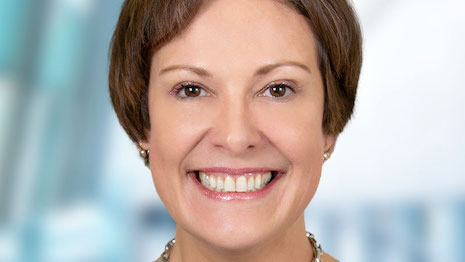 Adriana Lynch is chief marketing officer at Chief Outsiders
Adriana Lynch is chief marketing officer at Chief Outsiders
It is now 2020. New Year, new decade, and most of us are optimistic about our future.
We do know, however, that we need to put forward our fair share of energy and work to make our optimistic thoughts come to life: if you want to lose weight, you have got to eat right and exercise. If you want a promotion, you have got to show results.
How about the CEO of a once-thriving business? How does said CEO lay the path to see his or her optimistic vision of growth come to fruition?
While there is no silver bullet, the best place to start is knowing your consumer.
Spoiler alert: Consumers in 2020, are not the same as in 2000. This “evolved” consumer did not emerge overnight. This consumer has been evolving for the last two decades, maybe even more, so companies that want to grow sustainably and build a loyal base of customers need to deeply understand what currently drives their decisions.
Four score
Many people have heard about Professor John P. Kotter’s 4Ps that guide every marketing plan: product, price, placement and promotion. These four Ps call out important aspects to activate marketing ideas to reach consumers in the best possible way.
However, consumers enter this new decade looking for a deeper relationship with the products, services and companies they choose to bring into their lives and support with their hard-earned money.
The drivers of this deeper relationship can be explained by the new 4Ps on the block: People, planet, purpose and profits.
People: J.W. Marriott said, “Take care of your people, they will take care of your customers, and your business will take care of itself.”
Employee satisfaction drives customer satisfaction. A business’ customers can “feel” when employees are dissatisfied.
Customers know by the tone of their voice and their energy when they call the 800 number to get questions answered, or when they try to have a complaint dealt with via text, chat or by submitting questions online.
The way employees feel comes across in their interactions with customers. Take care of your people, they will take care of your customers.
Planet-friendly products: Constant streams of innovation, ease of use, clear benefits and value propositions are all important aspects of successful products, of course. But not at the unrestricted expense of our planet's natural resources. No, not anymore.
Wasteful products are getting ditched by consumers. Gone are the days when the more boxes within a box, the more luxurious and expensive was the product perceived. Environmentally friendly packaging is now guiding consumer decisions, as well as responsibly harvested ingredients.
Take, for example, Natura, the personal care Brazil-born company that since 1969 states their reason for being as “to create and sell products and services that promote the harmonious relationship of the individual with oneself, with others, and with nature.”
It is with this philosophy that Natura has been responsibly using Brazil natural’s resources to create its products, gathering hundreds of thousands of loyal consumers around the world. They have become a force to be reckoned with, recently acquiring The Body Shop and Avon.
Purpose: Cause-marketing is not new. Recall the Dawn dish soap advertising showing that it is so mild and yet so effective that it can wash ducks who have been caught by oil spills. At the same time, its advertising was using nature to communicate the product benefits – gentle, yet strong – it was also donating to wildlife conservation efforts. That is cause marketing.
What the 2020 consumer expects now is a business with a purpose: a business with a soul.
Take, for example, Toms Shoes and Bombas Socks, where for every shoe and sock sold one is donated to a child in need. Their mission is to help children in need of shoes and socks around the world, and they enable their mission buy selling their products Profitably.
Warning: do not pay lip service to consumers, because they can see right through it – businesses must mean it. And keep in mind, consumer product companies are not the only ones catching the purpose driven business wave. The service industry is too, and perhaps the most shocking example comes from the financial industry: banking – the Evil Empire itself.
Standard Chartered Bank launched the amazing “We Are Here for Good” campaign, which explains the brand’s position that a bank can be a force for good in the world. One of the many powerful advertisements in this campaign shows how it uses its network and scale as a global bank to track the money in illegal elephant poaching and report the activity to the authorities (here is a link to the commercial).
Profit: Last, but not least, in the few examples above, it is clear that companies that take care of their people, develop their products with the planet in mind and run their business with a purpose, are highly profitable. Cause and effect.
THE BOTTOM LINE: it is possible to do good and to do well, and the consumers of 2020 expect it.
Adriana Lynch is chief marketing officer at Chief Outsiders, Orange County, CA. Reach her at [email protected].
